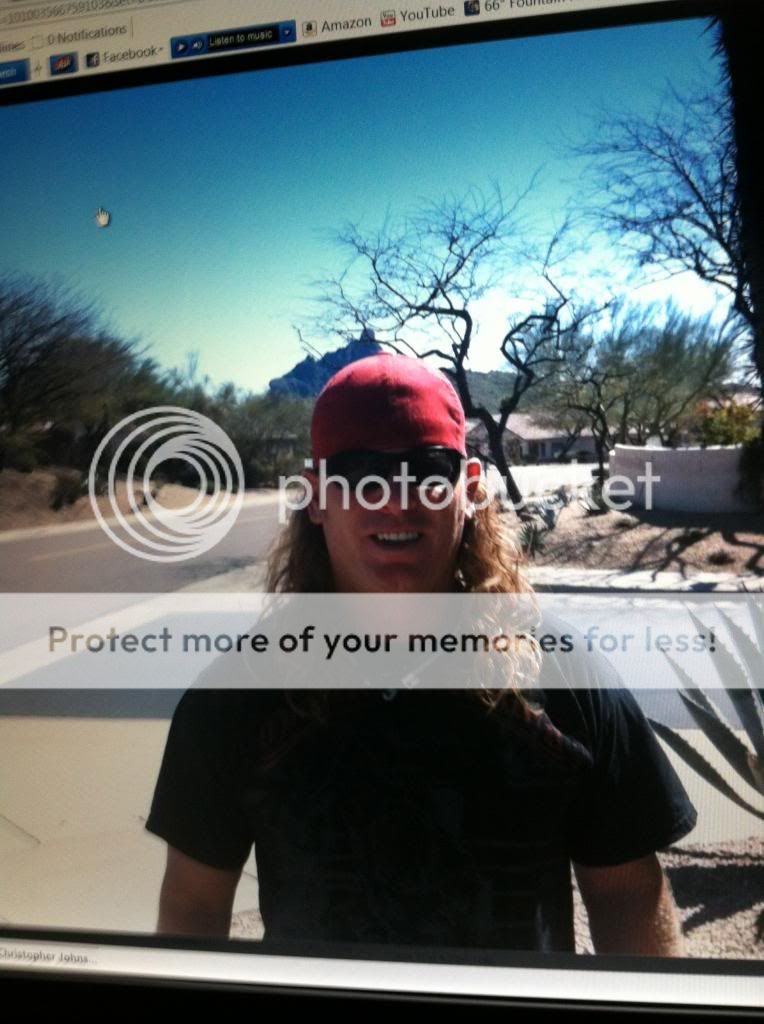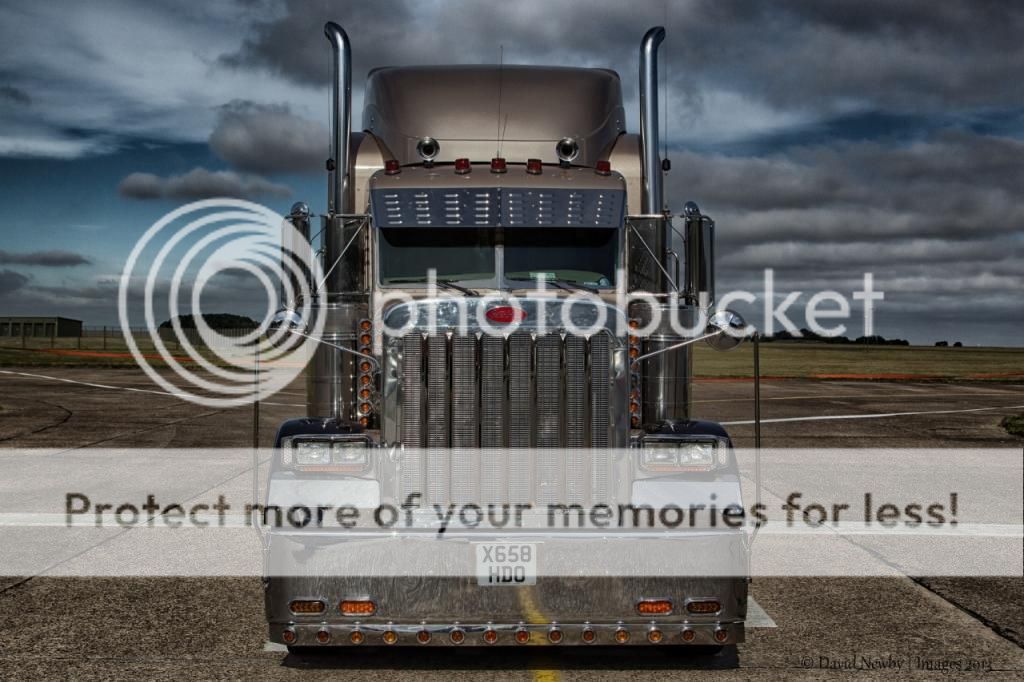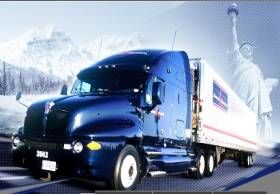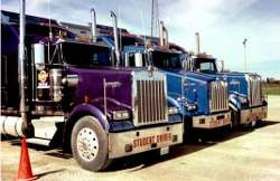Pondering Truck Driving Career
Topic 4680 | Page 2

I am a 40 year old male who is thinking about leaving my job as a Finance Manager to start a new career in truck driving. I have had it with Corporate America and want to try something new. I am fully aware that this will be a life altering change for me, my wife and two children. I have been doing a lot of research and have nearly selected a private training program. If I ultimately decide this is a career for me I would probably try to land a regional or local gig first. OTR is something I would consider, but only after my children have grown up and leave the nest (4-5 years). There is an orientation session before classes start in September. Any advice on what questions I should ask at the orientation and what are some other things I should be consider along the way? I am cautiously optimistic this might be the right opportunity for me since there is such a need for good truckers. Thanks in advance!
you pretty much have to start OTR out of school but after about 3 months you can get a local job easy all these companies saying they want 1-2 yrs verifiable tractor trailer is a bunch a BS
Regional:
Regional Route
Usually refers to a driver hauling freight within one particular region of the country. You might be in the "Southeast Regional Division" or "Midwest Regional". Regional route drivers often get home on the weekends which is one of the main appeals for this type of route.
OTR:
Over The Road
OTR driving normally means you'll be hauling freight to various customers throughout your company's hauling region. It often entails being gone from home for two to three weeks at a time.

If your sure about this then go for it.
Some local job be less the OTR and some more like the LTL companies. Until very recently those jobs used to go to experienced drivers. That seems to be changing now as prove we have a few people here that are starting at LTL companies right out of school. Your either home every night or every other night.
LTL:
Less Than Truckload
Refers to carriers that make a lot of smaller pickups and deliveries for multiple customers as opposed to hauling one big load of freight for one customer. This type of hauling is normally done by companies with terminals scattered throughout the country where freight is sorted before being moved on to its destination.
LTL carriers include:
- FedEx Freight
- Con-way
- YRC Freight
- UPS
- Old Dominion
- Estes
- Yellow-Roadway
- ABF Freight
- R+L Carrier
OTR:
Over The Road
OTR driving normally means you'll be hauling freight to various customers throughout your company's hauling region. It often entails being gone from home for two to three weeks at a time.
HOS:
Hours Of Service
HOS refers to the logbook hours of service regulations.
Welcome Mike...glad to see you're doing your research. I originally pondered driving as a career about 7yrs ago. Still had a daughter just finishing college and I was hesitating. Ended up doing tons of research which helped ALOT...and opted to wait it out just a bit. Now 7 years later, after a decent job finally went kaputt...I was back doing my research. Good thing is, Both my kids are out on their own, done with college. My daughter got married two years ago...another BIG money event past. And my grandson was born in February. What I'm getting at, do your serious research. Look at all the angles, just like Brett, Guyjax, and the rest of the guys are saying. Then when you are totally confident in the way your heading...go for it. Took awhile for me to get there but I'm 53, have a great wife thats all for it, and I start school in October. BTW....ask the private schools you've looked at if they get inquiries from local companies that hire newbies. I did and there are two that I'm honestly considering right out of the gate. Some overnights and crazy schedules but home on a more regular basis. If not..there's plenty of regional gigs hiring in my area. Best of luck to you!
Regional:
Regional Route
Usually refers to a driver hauling freight within one particular region of the country. You might be in the "Southeast Regional Division" or "Midwest Regional". Regional route drivers often get home on the weekends which is one of the main appeals for this type of route.
APU:
Auxiliary Power Unit
On tractor trailers, and APU is a small diesel engine that powers a heat and air conditioning unit while charging the truck's main batteries at the same time. This allows the driver to remain comfortable in the cab and have access to electric power without running the main truck engine.
Having an APU helps save money in fuel costs and saves wear and tear on the main engine, though they tend to be expensive to install and maintain. Therefore only a very small percentage of the trucks on the road today come equipped with an APU.


Hey, good luck to you. Hope you get the information you need at orientation. I am 39 and recently lost some of my work due to some recession issues and have decided to start a career in trucking after much research and talk with my wife. Like you I would like to start regional or local and prefer LTL. I know that may not be reasonable to start but am keeping my eyes open. I decided to go with a private company that job places with about 15 companies. I am extremely nervous about passing all the test since this is ultimately all or nothing for the family since I put money up for the school. I want to thank this site as I have been working on the practice test so far. I start my class on monday so my fingers are crossed. Hope to see some of you on the road shortly. Best of luck in your decision!
Regional:
Regional Route
Usually refers to a driver hauling freight within one particular region of the country. You might be in the "Southeast Regional Division" or "Midwest Regional". Regional route drivers often get home on the weekends which is one of the main appeals for this type of route.
LTL:
Less Than Truckload
Refers to carriers that make a lot of smaller pickups and deliveries for multiple customers as opposed to hauling one big load of freight for one customer. This type of hauling is normally done by companies with terminals scattered throughout the country where freight is sorted before being moved on to its destination.
LTL carriers include:
- FedEx Freight
- Con-way
- YRC Freight
- UPS
- Old Dominion
- Estes
- Yellow-Roadway
- ABF Freight
- R+L Carrier

Welcome Mike...glad to see you're doing your research. I originally pondered driving as a career about 7yrs ago. Still had a daughter just finishing college and I was hesitating. Ended up doing tons of research which helped ALOT...and opted to wait it out just a bit. Now 7 years later, after a decent job finally went kaputt...I was back doing my research. Good thing is, Both my kids are out on their own, done with college. My daughter got married two years ago...another BIG money event past. And my grandson was born in February. What I'm getting at, do your serious research. Look at all the angles, just like Brett, Guyjax, and the rest of the guys are saying. Then when you are totally confident in the way your heading...go for it. Took awhile for me to get there but I'm 53, have a great wife thats all for it, and I start school in October. BTW....ask the private schools you've looked at if they get inquiries from local companies that hire newbies. I did and there are two that I'm honestly considering right out of the gate. Some overnights and crazy schedules but home on a more regular basis. If not..there's plenty of regional gigs hiring in my area. Best of luck to you!
Jimbo, great feedback! Best of luck to you. Everyone here has been so helpful. It seems like there is a fraternity amongst the driving community and that is awesome!
Regional:
Regional Route
Usually refers to a driver hauling freight within one particular region of the country. You might be in the "Southeast Regional Division" or "Midwest Regional". Regional route drivers often get home on the weekends which is one of the main appeals for this type of route.
APU:
Auxiliary Power Unit
On tractor trailers, and APU is a small diesel engine that powers a heat and air conditioning unit while charging the truck's main batteries at the same time. This allows the driver to remain comfortable in the cab and have access to electric power without running the main truck engine.
Having an APU helps save money in fuel costs and saves wear and tear on the main engine, though they tend to be expensive to install and maintain. Therefore only a very small percentage of the trucks on the road today come equipped with an APU.


Hey, good luck to you. Hope you get the information you need at orientation. I am 39 and recently lost some of my work due to some recession issues and have decided to start a career in trucking after much research and talk with my wife. Like you I would like to start regional or local and prefer LTL. I know that may not be reasonable to start but am keeping my eyes open. I decided to go with a private company that job places with about 15 companies. I am extremely nervous about passing all the test since this is ultimately all or nothing for the family since I put money up for the school. I want to thank this site as I have been working on the practice test so far. I start my class on monday so my fingers are crossed. Hope to see some of you on the road shortly. Best of luck in your decision!
Go for it bro. I just went through an orientation session for private school and I was impressed. They said they will do everything in their power to assure passing of the tests and getting a student placed even before they complete the program. Essentially they would continue to work with you at no extra charge even if you fail the tests a number of times. A good school's reputation is based on pass / fail rates and want all students to graduate. This school also gave 40 hours of road testing above and beyond what is required by the DOT. They have companies lining up to hire people who graduate from their program. They also would not bad mouth any trucking companies, but only handed out materials on those they thought were worth working for. Seems to me like the private school is the way to go if they are credible. Company offered training appears to severely limit your options, but is a viable option if you don't have the cash for a private school. Most private schools do offer aid and sometimes you can get gov't funding. Good luck!
Regional:
Regional Route
Usually refers to a driver hauling freight within one particular region of the country. You might be in the "Southeast Regional Division" or "Midwest Regional". Regional route drivers often get home on the weekends which is one of the main appeals for this type of route.
LTL:
Less Than Truckload
Refers to carriers that make a lot of smaller pickups and deliveries for multiple customers as opposed to hauling one big load of freight for one customer. This type of hauling is normally done by companies with terminals scattered throughout the country where freight is sorted before being moved on to its destination.
LTL carriers include:
- FedEx Freight
- Con-way
- YRC Freight
- UPS
- Old Dominion
- Estes
- Yellow-Roadway
- ABF Freight
- R+L Carrier
DOT:
Department Of Transportation
A department of the federal executive branch responsible for the national highways and for railroad and airline safety. It also manages Amtrak, the national railroad system, and the Coast Guard.
State and Federal DOT Officers are responsible for commercial vehicle enforcement. "The truck police" you could call them.
HOS:
Hours Of Service
HOS refers to the logbook hours of service regulations.EPU:
Electric Auxiliary Power Units
Electric APUs have started gaining acceptance. These electric APUs use battery packs instead of the diesel engine on traditional APUs as a source of power. The APU's battery pack is charged when the truck is in motion. When the truck is idle, the stored energy in the battery pack is then used to power an air conditioner, heater, and other devices

Go for it bro. I just went through an orientation session for private school and I was impressed. They said they will do everything in their power to assure passing of the tests and getting a student placed even before they complete the program. Essentially they would continue to work with you at no extra charge even if you fail the tests a number of times. A good school's reputation is based on pass / fail rates and want all students to graduate. This school also gave 40 hours of road testing above and beyond what is required by the DOT. They have companies lining up to hire people who graduate from their program. They also would not bad mouth any trucking companies, but only handed out materials on those they thought were worth working for. Seems to me like the private school is the way to go if they are credible. Company offered training appears to severely limit your options, but is a viable option if you don't have the cash for a private school. Most private schools do offer aid and sometimes you can get gov't funding. Good luck!
Sounds like a great school. Do you mind sharing the name and location of it?
DOT:
Department Of Transportation
A department of the federal executive branch responsible for the national highways and for railroad and airline safety. It also manages Amtrak, the national railroad system, and the Coast Guard.
State and Federal DOT Officers are responsible for commercial vehicle enforcement. "The truck police" you could call them.
HOS:
Hours Of Service
HOS refers to the logbook hours of service regulations.EPU:
Electric Auxiliary Power Units
Electric APUs have started gaining acceptance. These electric APUs use battery packs instead of the diesel engine on traditional APUs as a source of power. The APU's battery pack is charged when the truck is in motion. When the truck is idle, the stored energy in the battery pack is then used to power an air conditioner, heater, and other devices

Go for it bro. I just went through an orientation session for private school and I was impressed. They said they will do everything in their power to assure passing of the tests and getting a student placed even before they complete the program. Essentially they would continue to work with you at no extra charge even if you fail the tests a number of times. A good school's reputation is based on pass / fail rates and want all students to graduate. This school also gave 40 hours of road testing above and beyond what is required by the DOT. They have companies lining up to hire people who graduate from their program. They also would not bad mouth any trucking companies, but only handed out materials on those they thought were worth working for. Seems to me like the private school is the way to go if they are credible. Company offered training appears to severely limit your options, but is a viable option if you don't have the cash for a private school. Most private schools do offer aid and sometimes you can get gov't funding. Good luck!
Sounds like a great school. Do you mind sharing the name and location of it?
The training is through Gateway Technical College in Kenosha, WI. It is a partnership with the college and a training company called Eagle Training Services. Eagle Training Services might partner with a local technical college in your area or just offer the training 'solo.' Any way, here is a link to Gateway's site - www.gtc.edu/cdl
Good luck!
CDL:
Commercial Driver's License (CDL)
A CDL is required to drive any of the following vehicles:
- Any combination of vehicles with a gross combined weight rating (GCWR) of 26,001 or more pounds, providing the gross vehicle weight rating (GVWR) of the vehicle being towed is in excess of 10,000 pounds.
- Any single vehicle with a GVWR of 26,001 or more pounds, or any such vehicle towing another not in excess of 10,000 pounds.
- Any vehicle, regardless of size, designed to transport 16 or more persons, including the driver.
- Any vehicle required by federal regulations to be placarded while transporting hazardous materials.
DOT:
Department Of Transportation
A department of the federal executive branch responsible for the national highways and for railroad and airline safety. It also manages Amtrak, the national railroad system, and the Coast Guard.
State and Federal DOT Officers are responsible for commercial vehicle enforcement. "The truck police" you could call them.
HOS:
Hours Of Service
HOS refers to the logbook hours of service regulations.EPU:
Electric Auxiliary Power Units
Electric APUs have started gaining acceptance. These electric APUs use battery packs instead of the diesel engine on traditional APUs as a source of power. The APU's battery pack is charged when the truck is in motion. When the truck is idle, the stored energy in the battery pack is then used to power an air conditioner, heater, and other devices
New Reply:
New! Check out our help videos for a better understanding of our forum features

















Preview:
This topic has the following tags:
Changing Careers Choosing A Truck Driving School Paying For Truck Driving School







 TT On Facebook
TT On Facebook
There are definately local and regional driving positions, in fact, regional is where I started and still am. Getting a local gig may be a bit more difficult as they tend to go to folks who have been driving for a while, but who knows?
Regional:
Regional Route
Usually refers to a driver hauling freight within one particular region of the country. You might be in the "Southeast Regional Division" or "Midwest Regional". Regional route drivers often get home on the weekends which is one of the main appeals for this type of route.
OTR:
Over The Road
OTR driving normally means you'll be hauling freight to various customers throughout your company's hauling region. It often entails being gone from home for two to three weeks at a time.